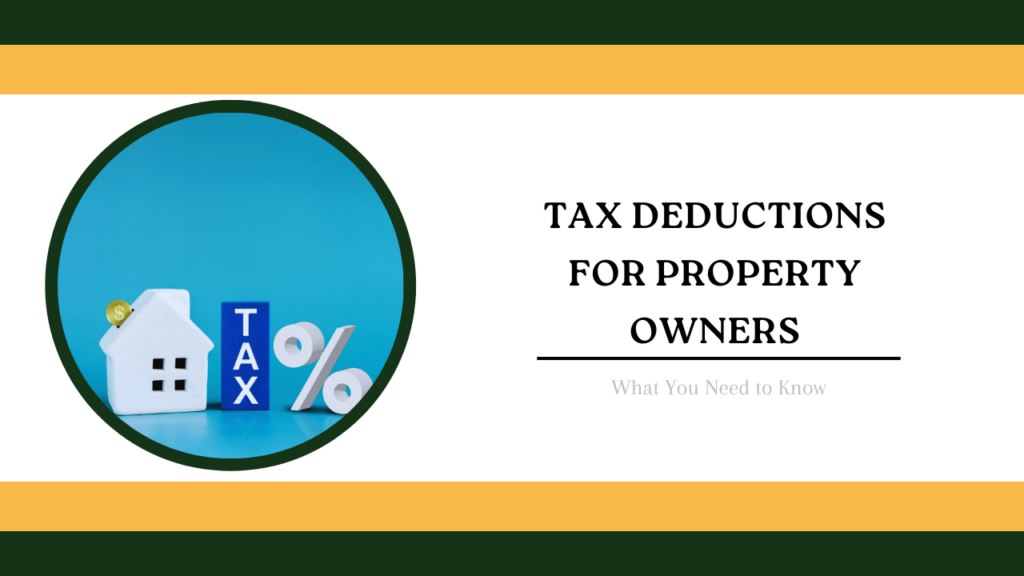
Rental property investments have a lot of benefits, especially at tax time. Most of the business and operational expenses associated with your rental property or your building can be deducted for tax purposes when you file.
Maybe your property earns you $1,750 in rent every month. You’ll have to pay taxes on the full amount unless you take the deductions you’re eligible for. If you work hard to keep your property maintained, you may invest in roof repairs or HVAC filters. Perhaps new windows were needed or updated appliances to replace those that kept breaking down.
Those expenses translate to tax savings. Instead of paying taxes on the $1,750, the deductions bring your income down a few hundred dollars, which means your tax liability and exposure is lower.
Here are the deductions you need to know about as a Colorado Springs rental property investor.
Depreciation as a Tax Benefit for Colorado Springs Rental Homes
You don’t want to miss out on the depreciation tax benefit. This is a big one for rental property investors, and you want to make sure you’re taking advantage of this deduction.
The IRS allows you to write off the deterioration of your rental property, which leads to a loss of value. The general rate of depreciation is set by the IRS at 27.5 years.
That’s not an insignificant amount of time, and it adds up to a pretty generous tax savings. Plus, the tax code allows you to accelerate the depreciation loss with your rental property. Most investors use this to offset their tax liability.
Talk to your CPA or your tax accountant. But generally, you’ll declare the rental property depreciation on Schedule E of a standard 1040. If you’re claiming depreciation on a property in the year that you began using it as a rental, you’ll use Form 4562. We’re property management experts, and we often advise our owners how to maximize their tax deductions, but we always recommend that you consult with your tax experts as well.
You cannot claim depreciation unless you own the property. It also has to be a rental property, earning income for you on a recurring basis.
Make sure you can document the useful life of your property. The type of rental home you own and its age and condition will impact the useful life. Everything has a different life cycle, or rate at which property wears down. For real estate, this is somewhat standardized and the 27.5 years applies, unless your property is subject to the Alternative Depreciation System, in which case it’s 30 or 40 years. This is unlikely, but you should be aware of it.
It’s important that the useful life of the rental property is greater than 1 year. Nothing that wears out in less than a year can be depreciated on your taxes.
Here’s another caveat when we’re talking about depreciation: if you begin renting out a home in one year and sell it within that same year, you cannot claim depreciation on that property.
Claim Deductions on Business Expenses for Colorado Springs Rental Property
Because the IRS sees your rental investment as a business, many of the expenses you incur as a business owner are tax-deductible. There are a few deductions you should always take advantage of when you’re claiming tax benefits. These include:
- Property-related interest payments. This is usually your mortgage. However, if you have an additional loan or even property-specific credit cards that carry a balance and charge you interest, you can deduct what you pay.
- Insurance premiums.
- Local property tax payments.
- Professional property management fees and additional professional fees such as accounting or legal costs.
- Maintenance and accelerated depreciation on household items.
- Travel costs involved in visiting your rental properties.
- Home office expenses.
Organize all of the necessary documentation to support every deduction you make. The IRS allows you to deduct only the ordinary and necessary expenses for managing and maintaining your rental property.
You can make tax deductions for the money you spend preserving the asset’s value and condition. You can also deduct general business costs, for example advertising a vacant property. That’s seen by the IRS as a necessary business expense, so you can deduct that cost.
Maintenance costs are deductible as well, but you have to be specific about what you’re maintaining. And, be careful about what you consider maintenance and what is considered an improvement. Improvements are not tax deductible. Anything you spend keeping your property safe and habitable is one thing, but you cannot deduct for new wood floors when you decide to replace your carpet. The IRS does not allow you to deduct the cost of improvements that lead to the betterment of your property value.
Defer Your Capital Gaines Taxes with a 1031 Exchange
Maybe you’re thinking about selling your Colorado Springs investment property. What will that mean for you when we talk about taxes?
You’ll have to report those earnings to the IRS. That will result in capital gains taxes unless you defer the payment of those taxes.
To defer the capital gains taxes you’ll have to pay on the sale of an investment property, we recommend that investors consider a 1031 exchange. When you take advantage of this tax benefit, you are going to sell one rental property and then use the proceeds to invest in a similar property or a series of properties. It won’t wipe away your tax liability entirely, but it will give you the opportunity to strengthen your investment portfolio and delay paying those taxes.
There are several important steps and timelines associated with a 1031 exchange. You need to move quickly to identify and close on a new property after you’ve sold the existing property.
Also:
- Make sure your property qualifies for this benefit. This tax program is meant for investment homes. You cannot sell the home you’ve been living in and reinvest the money to buy a vacation home. It has to be one income-producing property for another.
- You’ll need to exchange with a like property or properties. The new property you choose must have a value that is the same or higher than the original property. If you walk away from the exchange with any profit, they will be taxable.
- Find one property, two properties, or three to exchange with your current property.
- Pay attention to the timelines. You’ll need to identify a replacement property within 45 days of selling your original property. Then, you have 180 days to close on the new sale. The entire exchange must take place within the 180 days (meaning you don’t have 45 days plus 180 days – the clock does not reset). This can be a challenge now, with the market so hot and inventory lower than the demand. Be prepared to move quickly.
Before you begin a 1031 exchange, make sure you’ve hired an intermediary. This is a requirement. You also cannot take any of the cash from the sale of your property. The intermediary will hold your funds until they can be reinvested in your new purchase. Ask your property managers for a referral if you’re not sure who to work with.
If this makes sense to you, it’s possible to sell one rental home and invest in another without any of the tax liability that comes with selling investment property. It’s an excellent tax benefit that’s often underutilized by real estate investors. Talk to your property manager about whether it fits your investment goals.
Maintaining Good Records
 If you want to be really tax efficient, you need to have a lot of data on your property. Track the last time you put in a new tub, and make sure you know the model of the old tub. Document what kind of roof you have. Your Colorado Springs or Pueblo property management partner will have a system to capture all of this.
If you want to be really tax efficient, you need to have a lot of data on your property. Track the last time you put in a new tub, and make sure you know the model of the old tub. Document what kind of roof you have. Your Colorado Springs or Pueblo property management partner will have a system to capture all of this.
Keeping really good records can set you up for success at tax time. Make sure you keep all your receipts. Organize what you spend on your building, when you visited, and what types of investments you made in your properties. It works to your benefit to be organized, and it’s better for you at tax time. Your accountant will love you, and your bottom line will benefit.
There’s a lot of software and technology that can capture as much information as possible about your building, your rental property, and your entire portfolio. We can work with your accountant to provide day-to-day tax information.
Owners who know how to leverage all of the tax benefits available to them find that they earn more and spend less in the short and long term.
Ask your property management team how they stay organized before you hire them. You’ll want to know your best interests are protected at tax time.
We’d be happy to work with you. When you need help with taxes or any information about Colorado Springs or Pueblo property management, please contact us at Muldoon Associates.
